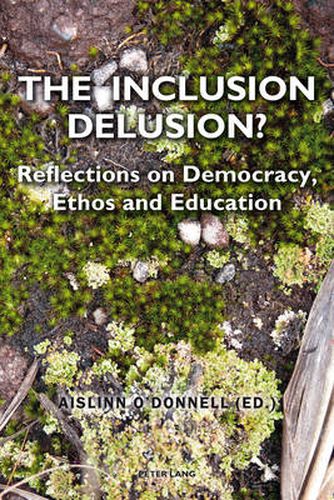Readings Newsletter
Become a Readings Member to make your shopping experience even easier.
Sign in or sign up for free!
You’re not far away from qualifying for FREE standard shipping within Australia
You’ve qualified for FREE standard shipping within Australia
The cart is loading…






This title is printed to order. This book may have been self-published. If so, we cannot guarantee the quality of the content. In the main most books will have gone through the editing process however some may not. We therefore suggest that you be aware of this before ordering this book. If in doubt check either the author or publisher’s details as we are unable to accept any returns unless they are faulty. Please contact us if you have any questions.
It may seem self-evident that a democratic society ought to develop inclusive institutions and an inclusive educational system, yet when we try to define what we understand by inclusion, its complexity becomes apparent. This book does not seek to diminish that complexity but aims to deepen our understanding of the idea and ideals of inclusion, as well as examining the presuppositions, values, aims and blind-spots associated with the language of inclusion. What do we mean by the concept? What normative assumptions underpin discourses of inclusion? What happens when we fail to think about the unintended consequences of including those who were previously excluded? Is there an implicit ideal of ‘normality’ at play? Does the concept of inclusion foreclose interrogation of patterns of privilege and power?
This book argues that in order to develop just and inclusive institutions we must begin from the standpoint of those who feel silenced, marginalised and excluded. Responding to the context of Irish education, it makes an important contribution to ongoing debates in Ireland and internationally about how institutions need to change if they are to become genuinely inclusive.
$9.00 standard shipping within Australia
FREE standard shipping within Australia for orders over $100.00
Express & International shipping calculated at checkout
This title is printed to order. This book may have been self-published. If so, we cannot guarantee the quality of the content. In the main most books will have gone through the editing process however some may not. We therefore suggest that you be aware of this before ordering this book. If in doubt check either the author or publisher’s details as we are unable to accept any returns unless they are faulty. Please contact us if you have any questions.
It may seem self-evident that a democratic society ought to develop inclusive institutions and an inclusive educational system, yet when we try to define what we understand by inclusion, its complexity becomes apparent. This book does not seek to diminish that complexity but aims to deepen our understanding of the idea and ideals of inclusion, as well as examining the presuppositions, values, aims and blind-spots associated with the language of inclusion. What do we mean by the concept? What normative assumptions underpin discourses of inclusion? What happens when we fail to think about the unintended consequences of including those who were previously excluded? Is there an implicit ideal of ‘normality’ at play? Does the concept of inclusion foreclose interrogation of patterns of privilege and power?
This book argues that in order to develop just and inclusive institutions we must begin from the standpoint of those who feel silenced, marginalised and excluded. Responding to the context of Irish education, it makes an important contribution to ongoing debates in Ireland and internationally about how institutions need to change if they are to become genuinely inclusive.